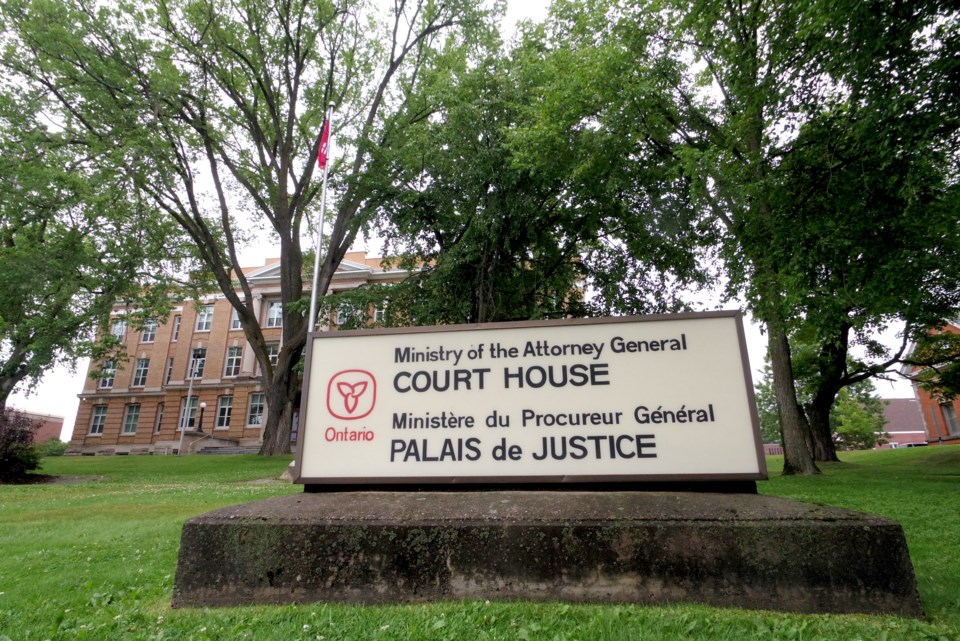A Searchmont man no longer faces an impaired driving charge after a judge ruled that police had violated his Charter rights following his July 3, 2020 arrest.
Ontario Court Justice Heather Mendes stayed proceedings last week against Shane Young, 44, because a city police video of an officer's interactions with the accused wasn't provided to the defence.
This breached his right, under Section 7 of the Charter of Rights and Freedoms, to receive disclosure so he could make a full answer and defence, the judge said.
Young pleaded not guilty to impaired operation by drugs in June 2022.
During the three-day trial, Mendes heard testimony from three witnesses, as well as arguments on the defence's Charter application.
Tahnee Caraballo argued there should be a stay of the proceedings because police didn't preserve video of a Drug Recognition Examination (DRE) conducted by one of the officers.
After making requests for disclosure of the video, the defence was advised that the officer hadn't taped the examination.
Her client's rights were infringed to the extent that the only remedy is exclusion of the evidence — a urine sample and its analysis results — and a stay, she maintained.
Failure to produce video evidence severely prejudiced his rights, Caraballo said.
"The right to make full answer and defence is one of the main principles of fundamental justice."
Prosecutor Robert Skeggs countered that the method police used to collect the DRE evidence followed the requirements.
There is no constitutional right to have an accused person's interaction with police videotaped during this required examination, he said.
Even if it had been taped, it wouldn't document all necessary observations, such as the accused's driving prior to being stopped, demeanour and actions at the roadside, and the toxicology reports a judge would consider to determine whether or not he was impaired, Skeggs argued.
Young was charged after officers spotted a northbound vehicle swerving in and out of its lane on Great Northern Road.
The 2007 Mazda 5 nearly struck the cruiser, then swerved quickly back to the shoulder almost hitting the curb.
When he was pulled over near Drive In Road, Young told the officers he hadn't consumed any alcohol or drugs.
They noted he was "very jittery" and his pupils were "extremely small."
Young failed a sobriety test, was arrested and taken to the police station.
After completing the DRE, Const. Bryan Greco documented his observations and completed required reports.
As a result of Young's performance, the officer believed his ability to drive was impaired by narcotics.
A urine demand was made, a sample was collected and a forensic analysis confirmed the presence of drugs.
Greco testified the room at the police station where testing for impaired driving was done had a single video camera which only recorded a limited area — a corner near the intoxilyzer.
In July 2020, there was no requirement that the drug tests be videotaped, he said, indicating it wasn't his practice to record them.
Some of Young's tests took place in a hallway and another room, the court heard.
Greco said he wasn't sure what was recorded in the testing room because it was purged after 30 days.
When she gave her decision, Mendes said the recording should have been preserved.
The test is highly subjective and a video would show how it was conducted, parts of which may been important to the defence and the court, she said.
It's not up to an officer to determine the relevance of the evidence. It's up to the defence and the court.
"The officer's actions were not malicious, but he overstepped his role on what should or should not be retained," the judge said.
"The only appropriate remedy is a stay of the proceedings."
